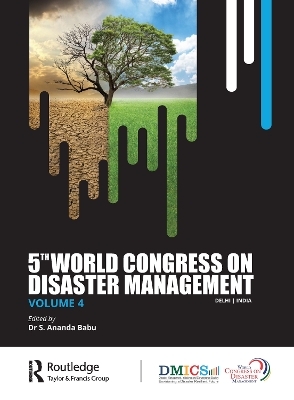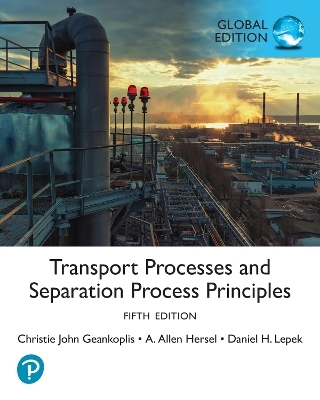
Fifth World Congress on Disaster Management: Volume IV
Routledge (Verlag)
978-1-032-35551-1 (ISBN)
- Titel ist leider vergriffen;
keine Neuauflage - Artikel merken
S. Ananda Babu is President of DMICS and Convenor of WCDM
Part 1: Building Resilience of Communities to Disasters 1. Indigenous Knowledge and Practices of the Small Ethnic Communities of Asia-Pacific Island Countries in Facing Hydro-meteorological Hazards 2. An Inquiry in to Critical Factors of Community Resilience of Tribal Community: A Case of Kerala 3. Where the Underprivileged Achieve Disaster Resilience: The Dawn of a Self-Sufficient Neighborhood 4. Poverty and Disaster Risk Reduction Link for Sustainable Development “A Case Study of Union Councils of District Swabi” 5. Life with Jiadhal: A Study of Indigenous Knowledge and Practices in Disaster Resilience 6. Redesigning the Community-Based Disaster Risk Management Approach in India with Addition of Risk Perception from the Communities 7. Strengthening Indigenous Capacity for Building Resilience: A Case Study of Community Grain Banks in Palamu, Jharkhand 8. Indigenous Capacity for Disaster Resilience of the Flood Affected People in Bangladesh 9. Family Preparedness for Disaster Risk Reduction by Engaging Local Governance and Communities in Bihar (India) 10. Disaster Risk Reduction and the Sendai Framework: What Does it Mean for Bihar Disaster Resilience Practitioners? Part 2: Developing Capacity for Building Resilience to Disasters 11. Kautilya’s Antecedents, Contemporary Disaster Resilience: Relevance of Today’s Strengths and Limitations 12. Avhan: Maharashtra Chancellors Brigade: NSS: State Level Training Camp on Disaster Preparedness 13. Can Disaster Management Capabilities be enhanced through a Well Developed and Structured Training Embedded Capacity Building Strategy? 14. Hopeful Tomorrow 15. A Study of Community Vulnerability and Capacity in the Context of Climate Change in Majuli, Assam 16. Basic Education on Disaster Management for Saving Lives 17. Capacity Development for Pri on Disaster Management in the Flood Affected Districts in Bihar 18. Building Resilience Through Disaster Management Perspectives in Higher Education Part 3: Disaster Preparedness for Response 19. Military Response to Natural Disasters: The Resilience of Affected Nations 20. A Review of Response to COVID 19—IRS as Management Tool 21. Evacuation of the Transient Population: Review of the Behavioral Aspects and Challenges 22. Ham Club Station within District EOCs to Reduce Disaster Mortality 23. Assessing the Capacity of Emergency Support Functions (ESFs) for Disaster Response: A Case of Kozhikode District, Kerala 24. The Impact of COVID-19 Pandemic on the Institutional Mechanism of Police Force in Akola District 25. Safety Up-gradation in Indian Nuclear Power Plants; Education and Preparedness on Disaster Management for First Respondents to Ensure Safety of Plant Personnel and Public 26. Fire as a Disaster: Review of VariousPrevention, Protection and Management Techniques 27. Evolution of Disaster Management in Indian Railways 28. Disaster Communication—Role of Civil Society in Preparedness 29. Emergence of Grey Water, Past Present and Future: An Overview Part 4: Resilient Energy and Infrastructure 30. Seismic Response Evaluation of Electrical Equipment—An Approach for Resilient Power System 31. Climate Change Induced Disaster and Resilient Infrastructure In Coastal Area 32. A Noble Ultra Low Cost Vibration Detection and Warning System to Avoid Railway Accidents 33. Latest Innovations in Optimizing Renewable Energy Systems Infrastructure Efficiency 34. Resilient Infrastructure: A Paradigm Shift to Safe Structures 35. Business Continuity Planning for Rail Infrastructure in India under Multi-hazard Risk Analysis 36. Safe and Reliable Railway Operations Through Assessment and Mitigation of Wheel-Slip Risks in Railways 37. Assessing the Role of Infrastructure Resilience within Community Resilience in Disaster Management 38. An Innovative Approach to Cost Effective Design of Earthquake-Resistant Bridges and Roads 39. Role of Dynamics in Seismic Resilience of Built Structures in India 40. Earthquake Risk Reduction: Effective Recovery for Building Sustainable Community Resilience Part 5: Resilience of Built up Environment 41. Assessing Building Vulnerability of Indian Cities in Earthquake Zone V 42. Risk Assessment and Mitigation of Tehri-Koteshwar Road in the Lesser Himalayas, India 43. ‘Blue Economy’ vs ‘Coastal Human Settlements and Their Houses’—A Framework to Identify Similar Construction Methods and Materials 44. Evolution of Humanitarian Shelter Aid Design and Quarantine Housing in COVID 19 Pandemic 45. Buildings in Severe Earthquake Zones Made of Structural Steel Hollow and Plate Members 46. P-Delta Effects on SCWB & WCSB Steel Frames Subject To Seismic Loading 47. Importance of Risk Allocation for Insuring Large Infrastructure Projects: A Legal Perspective Part 6: Managing Post Traumatic Stress Disorders in Disasters 48. Reducing Post-Traumatic Stress Disorder Through Nostalgia Inducing Music: Exploring the Role of Resilience 49. Managing Post-traumatic Stress Disorders in Disasters: University Students 50. Post-traumatic Reactions of Adolescents in a Conflict Region: Findings from an Ethnographic Study on Mental Health in Jammu and Kashmir 51. The Impact of Natural Disaster on the Mental Health of Rescue Workers 52. Effectiveness of Training Workshop for Health and Mental Health Professionals on Psychosocial Care in Disaster Management 53. Samaashraya: An Innovative Mental Health Clinic for Trauma Survivors 54. Training Workshop for Health and Mental Health Professionals on Psychosocial Care in Disaster Management with a Relief Centric to Disaster Risk Reduction Approach 55. Networking and Knowledge Management for Capacity Building in CESC, a Power Utility in Kolkata 56. Role of Higher Education in Disaster Preparedness and Management in India
| Erscheinungsdatum | 30.06.2022 |
|---|---|
| Reihe/Serie | Fifth World Congress on Disaster Management |
| Zusatzinfo | 100 Illustrations, black and white |
| Verlagsort | London |
| Sprache | englisch |
| Maße | 210 x 280 mm |
| Gewicht | 1247 g |
| Themenwelt | Technik ► Umwelttechnik / Biotechnologie |
| ISBN-10 | 1-032-35551-4 / 1032355514 |
| ISBN-13 | 978-1-032-35551-1 / 9781032355511 |
| Zustand | Neuware |
| Informationen gemäß Produktsicherheitsverordnung (GPSR) | |
| Haben Sie eine Frage zum Produkt? |
aus dem Bereich


